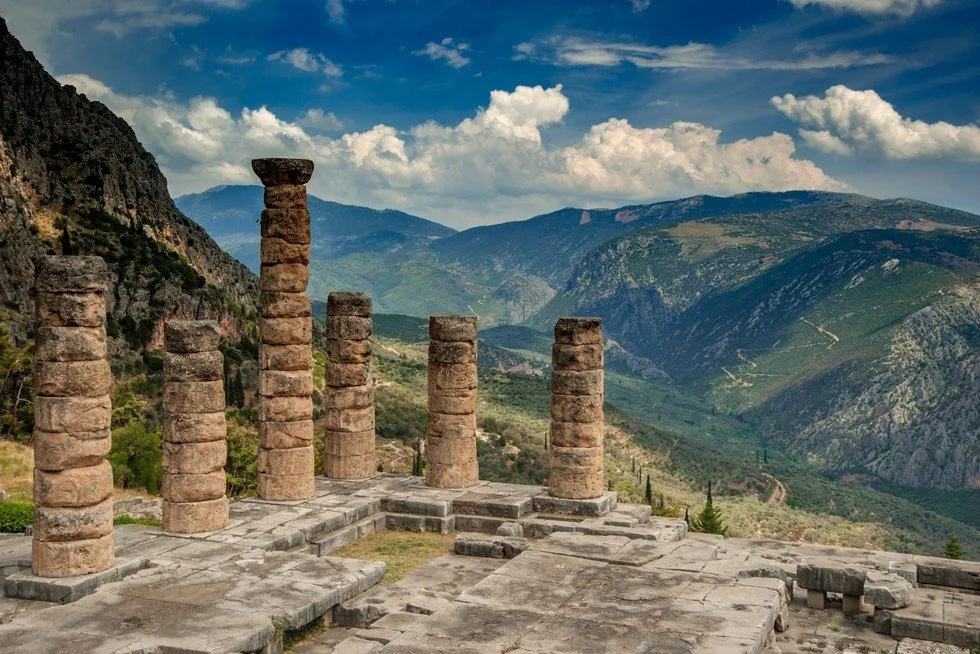Know Thyself
Unlike the Israelites the ancient Greeks had no commandments, except for one, maybe, the maxim know thyself, inscribed above the entrance of the temple to Apollo at Delphi. This was less a call for subjective self-reflection than a warning of the dangers of hubris. Hubris, that most Greek of vices, is the human folly that sets the fall of justice going in all those ancient myths. When I am talking too big and acting as if I were a god, then Nemesis, the goddess of vengeance, wings down from heaven and puts the hell in Hellene.
The Greeks personified everything. This anthropomorphic animism amounts to a kind of spilled psychology, a psychology turned inside-out, where every whim was externalized into a world of exogenous force. Or not so exogenous, like when Odysseus curses his stomach as if it had a will of its own: “never satisfied, always wanting more.” As Simone Weil notes in her essay on the Iliad, everyone is equally subject to the force of war, whether killed or killing. In a world of pure force to know myself is to know simply that I am not one of the deathless gods. In short: I am limited. I myself have no force, but rather am subjected to forces that are quite beyond my control, if not my comprehension. The daemon is my fate, my portion given to me by the Erinyes who walk in darkness, those daughters of necessity. This particular fate is distinguished from our modern notion of mechanistic determinism for that which is determined can be known by science (allegedly), whereas my destiny remains unknowable; it is, as they say in psychoanalysis, overdetermined—or even indeterminate; which is why I would have sought the oracle, dwelling in the grotto, to huff the prophetic vapors and speak her enigmas from out of the trance.
While this spilled psychology may be as true now as it was then—since we have no more gotten rid of projection than we have escaped sublime necessity—its obvious flaw is that it makes everyone a victim. This is no doubt one reason why we don’t live there anymore: we can no longer blame our actions upon the gods.
The Temple to Apollo at Delphi subjected to the forces of history


